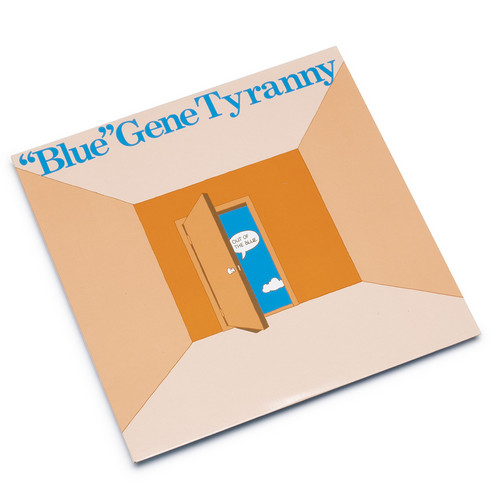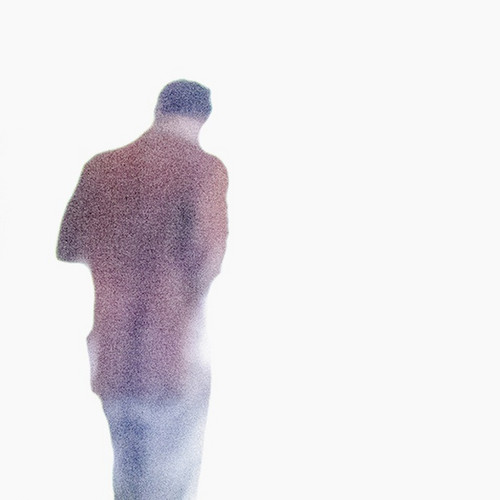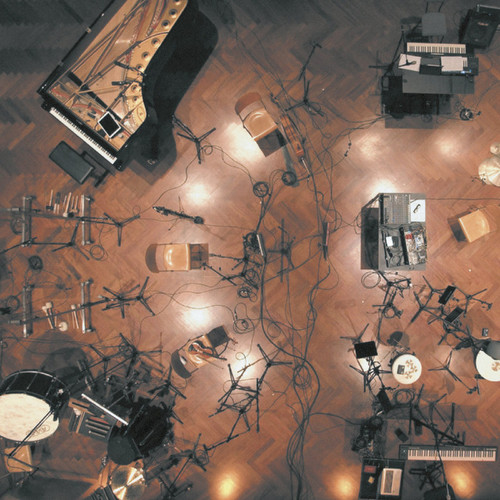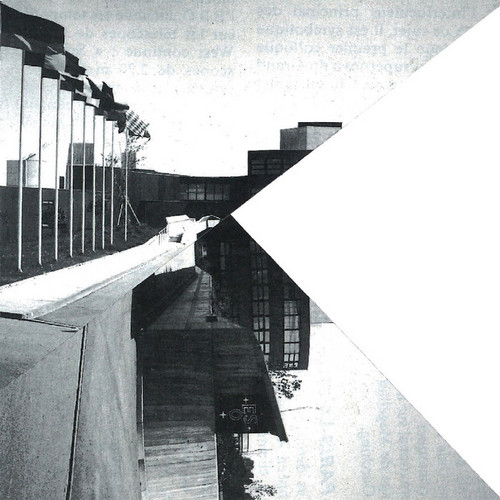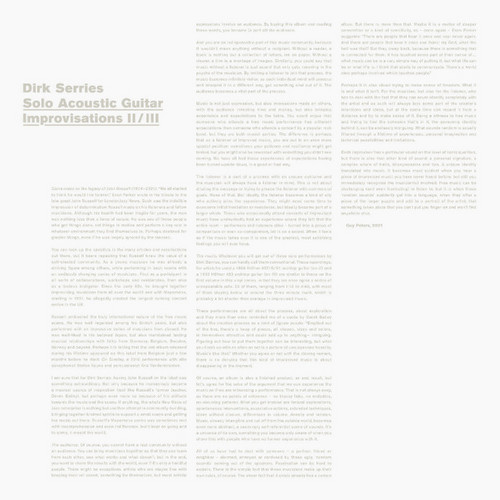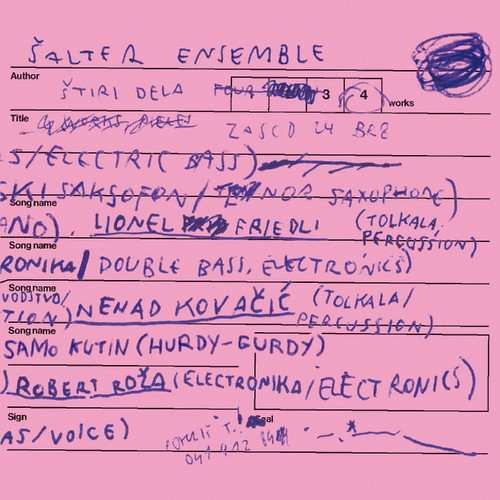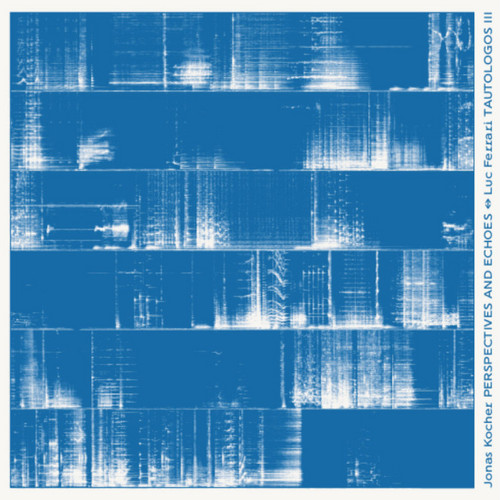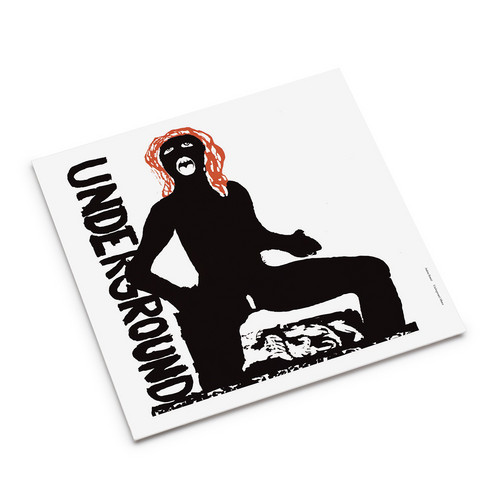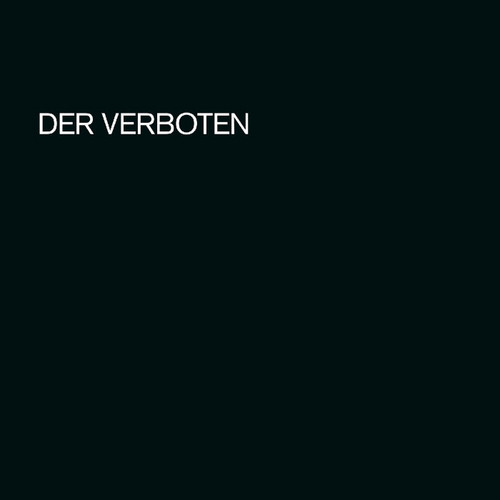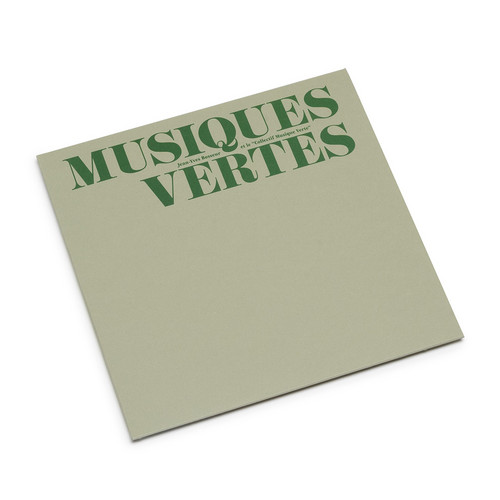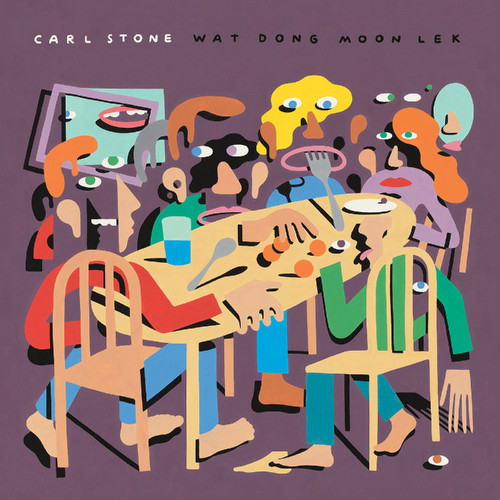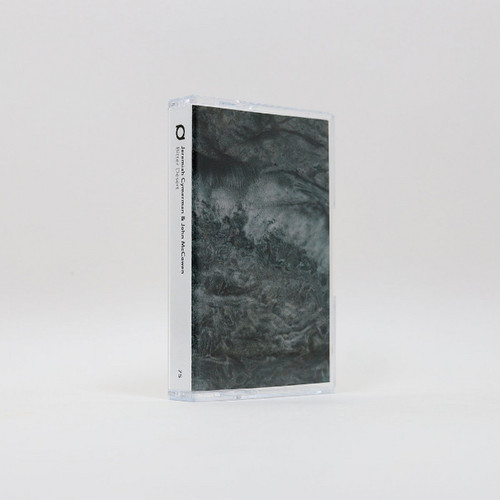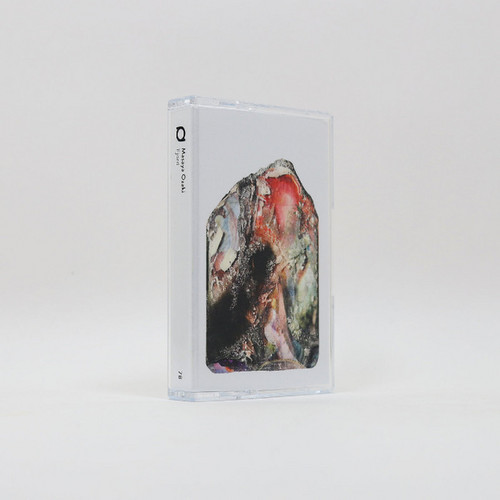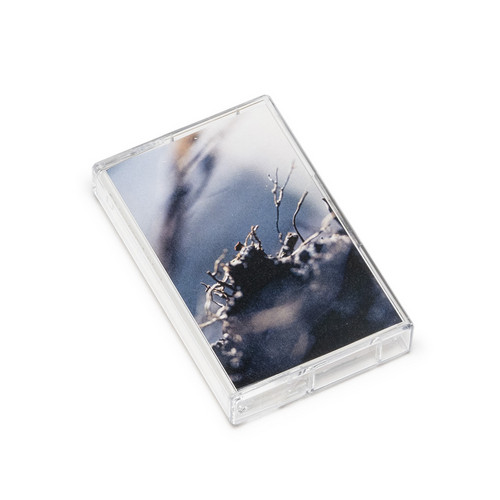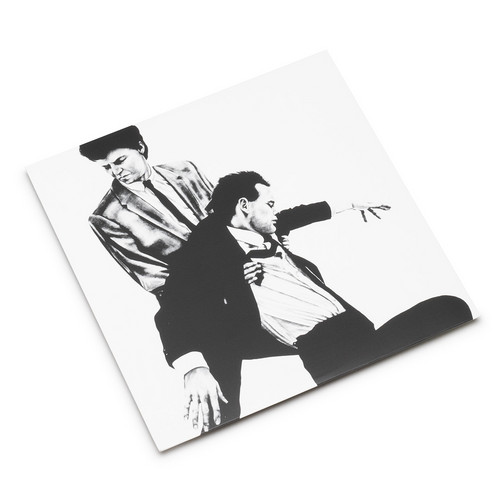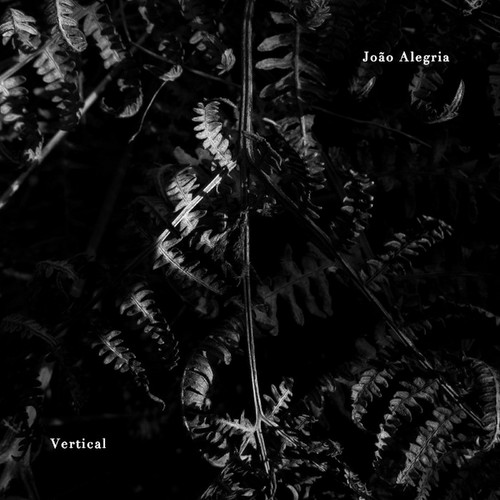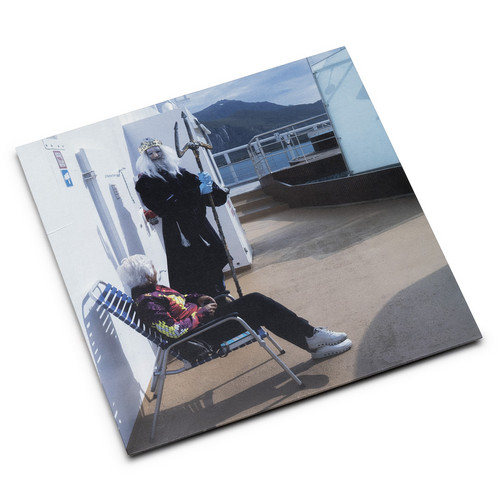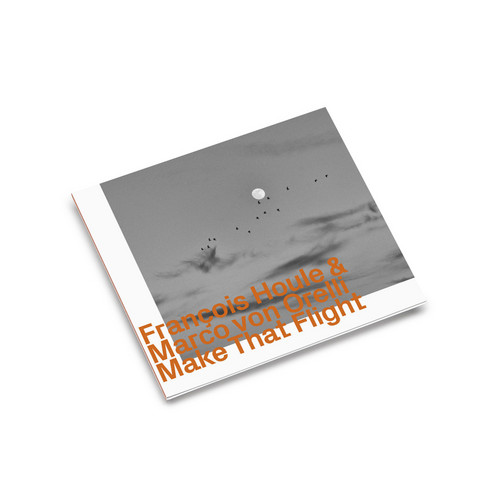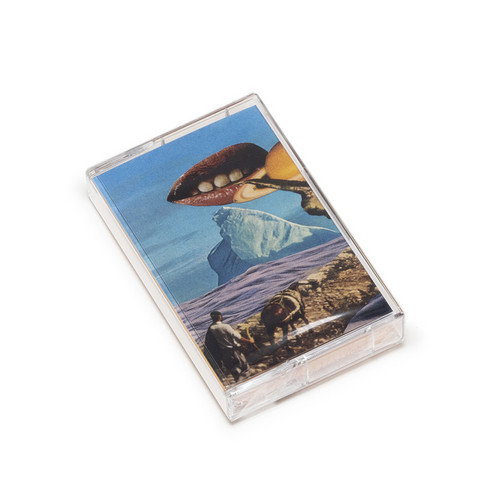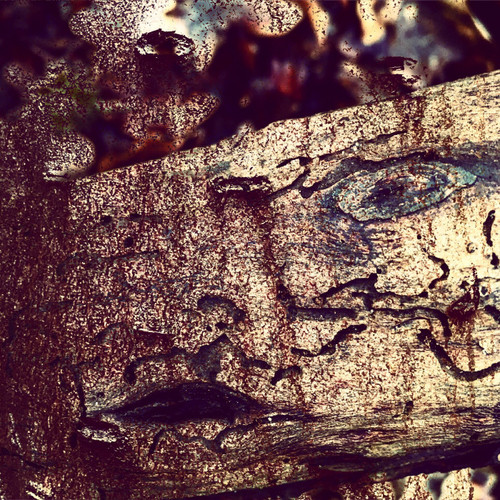Out of the blue
* 2022 Repress* First-ever LP reissue. “Blue” Gene Tyranny’s debut album Out of the Blue — newly remastered with original cover art — which was among the first to releases on Lovely Music in 1978 alongside Robert Ashley Private Parts, David Behrman On the Other Ocean, Jon Hassell Vernal Equinox, Meredith Monk Key, and Peter Gordon Star Jaws. Disarmingly direct, funky, and profound, Out of the Blue is an equanimous, wide-open exploration of Tyranny’s musical world: equal parts song cycle, tone p…
Live In Trentville
Unlike the distant "18/8/81" or the more recent "Wrong Ninna Nanna", this new solo work contains no piano or other instrumental parts. In this release, which occurred like all truly welcome things in an unexpected and unsought way, I have collected some of my own compositions created only from sound material recorded around or taken from other recorded music. Such material has been mutated with various sound processings, and assembled by multiplying layers in both digital and analog environments…
The Imitation Of An Action
These recordings are based on the idea of acoustic instruments imitating electronic sounds created by a live performer. The core, structure, and length of the pieces are defined by a graphic score that leaves room to the musicians for the imitation of those sounds.
This work is a commission by Archipel Festival and Ensemble Contrechamps, with the support of the Nicati-de Luze foundation.
13'36 10'42 12'48
*In process of stocking* These live recordings were lost and forgotten in our archives, more than a decade later, they were found on a dusty external hard drive in Meirino’s home studio. Re-discovered, edited, mixed, and mastered in 2021.Artwork and mastering by Francisco MeirinoComes in a digipack with matt printing, features artwork collage by Francisco Meirino and live pictures by Lisa Seitz & Megan Jankowski.
Solo Acoustic Guitar Improvisations II / III
*200 copies limited edition. In process of stocking* "These performances are all about the process, about exploration and they more than once reminded me of a quote by Derek Bailey about the creation process as a kind of jigsaw puzzle: “Emptied out of the box, there’s a heap of pieces, all shapes, sizes and colors, in themselves attractive and could add up to anything— intriguing. Figuring out how to put them together can be interesting, but what you finish up with as often as not is a picture o…
Štiri dela
Roko Crnić (electric bass), Bertrand Denzler (tenor saxophone), Marina Džukljev (piano), Lionel Friedli (percussion), Tomaž Grom (double bass, electronics), Jonas Kocher (accordion and artistic direction), Nenad Kovačić (percussion), Samo Kutin (hurdy-gurdy), Srdjan Muc (electric guitar), Tena Novak Vincek (violin), Robert Roža (electronics), Irena Tomažin Zagoričnik (voice)
Recorded in concert by Radio Slovenia on January 17, 2019, at the culture center Španski borci, Ljubljana.Mix and master b…
Perspectives And Echoes / Tautologos III
-bRt- group for music creationGaudenz Badrutt, live electronics / Estelle Beiner, violin / Jacques Demierre, piano / Jonas Kocher, accordion (Tautologos III) / Stephen Menotti, trombone / Manon Pierrehumbert, harp / Christian Wolfarth, percussion
Artistic direction: Gaudenz Badrutt & Jonas Kocher
Liner notes by Lê Quan Ninh:Free improvisation is defined, among other things, by its practioners' refusal to rely on a form composed by others. Partially, perhaps, from pride, but above all from playfu…
Underground Altena
Alga Marghen returns with an absolute stunner, the LP “Underground Altena”, comprising a never before heard or released series of recordings capturing Anima - the duo of Limpe Fuchs and Paul Fuchs - in 1973. Largely rendered on a striking array of instruments, invented and played by the couple, its otherworldly, visionary sounds upend nearly every perception held about underground music transpiring in Germany during this period. Wild, wonderful, truly free, and inspiring as records come.
Der Verboten
The quartet Der Verboten consists of the following musicians: Frantz Loriot (viola), Antoine Chessex (tenor saxophone), Christian Wolfarth (percussion) and Cédric Piromalli (piano). Der Verboten's music swings between improvised music, contemporary jazz and experimental acoustic music. In the course of their collaboration, the four musicians have developed a resolutely differentiated sound language. Although the ensemble works in a conceptual and highly structured way, the practice of improvisa…
Musiques Vertes
A document of pure sonic magic and stunningly organic creativity, Holidays Records drops the first ever vinyl reissue of Jean-Yves Bosseur's visionary 1982 LP “Musiques Vertes”, recorded by the legendary French ornithologist and wildlife field recordist Jean-Claude Roché. Utilizing handmade instruments constructed from plants and other natural materials, played by collective of children and untrained musicians, its radically experimental sounds build a revelatory bridge between the avant-garde a…
Wat Dong Moon Lek
Carl Stone continues his late career prolific renaissance with a new album of sculpted, tuneful MAX/MSP fantasias. Stone “plays” his source material the way Terry Riley’s In C “plays” an ensemble – with a loose, freewheeling charm connected to the ancient human impulse to make sound, melody, and rhythm from anything. Stone’s unique technique simultaneously focuses and sprays sound like a symphony of uncapped fire hydrants. Is this techno, avant-garde, sound art? It’s simply (or rather fantastica…
Bitter Desert
Tip! *110 copies limieted edition. In process of stocking* 'Bitter Desert ushers in an intensely reflective listening induced by the sounds of clarinets moving restlessly through progressions of granulated tone, soaring harmonic, gnarly growl, and wild fluttering. The ground here is only apparently firm; rather it is sand-like, constantly shifting beneath the feet of our ears as it surveys a vast sonic expanse turned profoundly inward.' – Adam Zuckerman
Fjord
*100 copies limited edition. In process of stocking* Fjord abounds in striking sonic images with a bold poetic sensibility which seems to open a world entirely its own as it deepens our experience of this world as it actually is. Field recordings are layered and blended with those of everyday objects and the occasional instrument in a dynamic assemblage which strips away the familiarity of a sound's source for the richness of its connotative potential. These fragmentary and repetitious sounds ar…
Unnameable Element
*100 copies limited edition. In process of stocking* 'Trumpet, piri, and Vocalnori (amplified gongs via the voice) unfold a splattering of sounds, gurgling textures, gestural outbursts, and fragmented melodic runs. With their uncanny doublings and waves of resonance, these sounds accumulate and disperse in a confounding of the senses, increasingly attuned to the interstices of its sonic reflections and refractions.' – Adam Zuckerman
The Ascension
2025 Repress. Glenn Branca's first full-length album The Ascension is a colossal achievement. After touring much of 1980 with an all-star band featuring four guitarists (Banca, fellow composers Ned Sublette and David Rosenbloom, and future Sonic Youth member Lee Ranaldo) along with Jeffrey Glenn on bass and Stephan Wischerth on drums, Branca took his war-torn group into a studio in Hell's Kitchen to record five incendiary compositions.
Originally released in the summer of 1981, The Ascension eff…
Vertical (2011/2021)
*In process of stocking. 50 copies limiteed edition* "Ten years of music, almost always published on the net. Transformation is what I can think of to write. Even the rock is mutable. We carry in our bodies the traumas, the suffering. Then there's the rest. Vertical is the ascent to the heavens, and more, as I read somewhere, what cannot be said is consigned to silence." - João Alegria
A work of anthological nature around the admirable work of João Alegria - guitar player almost always in the sh…
ਚੈਨਲKAANALचैनलRÁÐעָרוּץ
**Blue vinyl Limited Edition to 300 numbered copies ** The title alone - rendered in Punjabi, Dutch, Hindi, Icelandic, and Hebrew scripts, all spelling out variations of the word "channel" - signals that we are entering territory where conventional categories dissolve. This extraordinary summit meeting brings together three of the most distinctive voices in contemporary experimental music: Charlemagne Palestine, the grand patriarch of drone and sustained tone; Oren Ambarchi, whose guitar work ha…
Make That Flight
Temporary Super Offer! 'Even a cursory revisiting of Houle and von Orelli’s previous recordings confirms that the stark forum afforded by a horn duo strips their music to its essentials, their shared ability to make unorthodox forms and materials sing and dance being the most salient. Fresh, distanced, and potentially transformative perspectives abound on this album, and not just about the music of any other artist; but, more importantly, the tug and pull between the continuity represented by tr…
Hi! Who Are You?
**Orange tape Limited Edition to 90 numbered copies ** The trio Susana Santos Silva / Torbjörn Zetterberg / Hampus Lindwall emerged in 2015 with their first album If Nothing Else (Clean Feed CF348) which was received with critical acclaim. The unique conceptual approach to composition & improvisation rooted in both free jazz and contemporary classical music was described as “guaranteed a unique listening experience” (JazzIn), “It is art!” (Gapplegate Music Review) and “unique sound and style” (N…
Mokusatsu
** Gold tape Limited Edition to 90 numbered copies ** Matière Mémoire presents Mokusatsu by Giovanni Di Domenico and Tatsuhisa Yamamoto.
